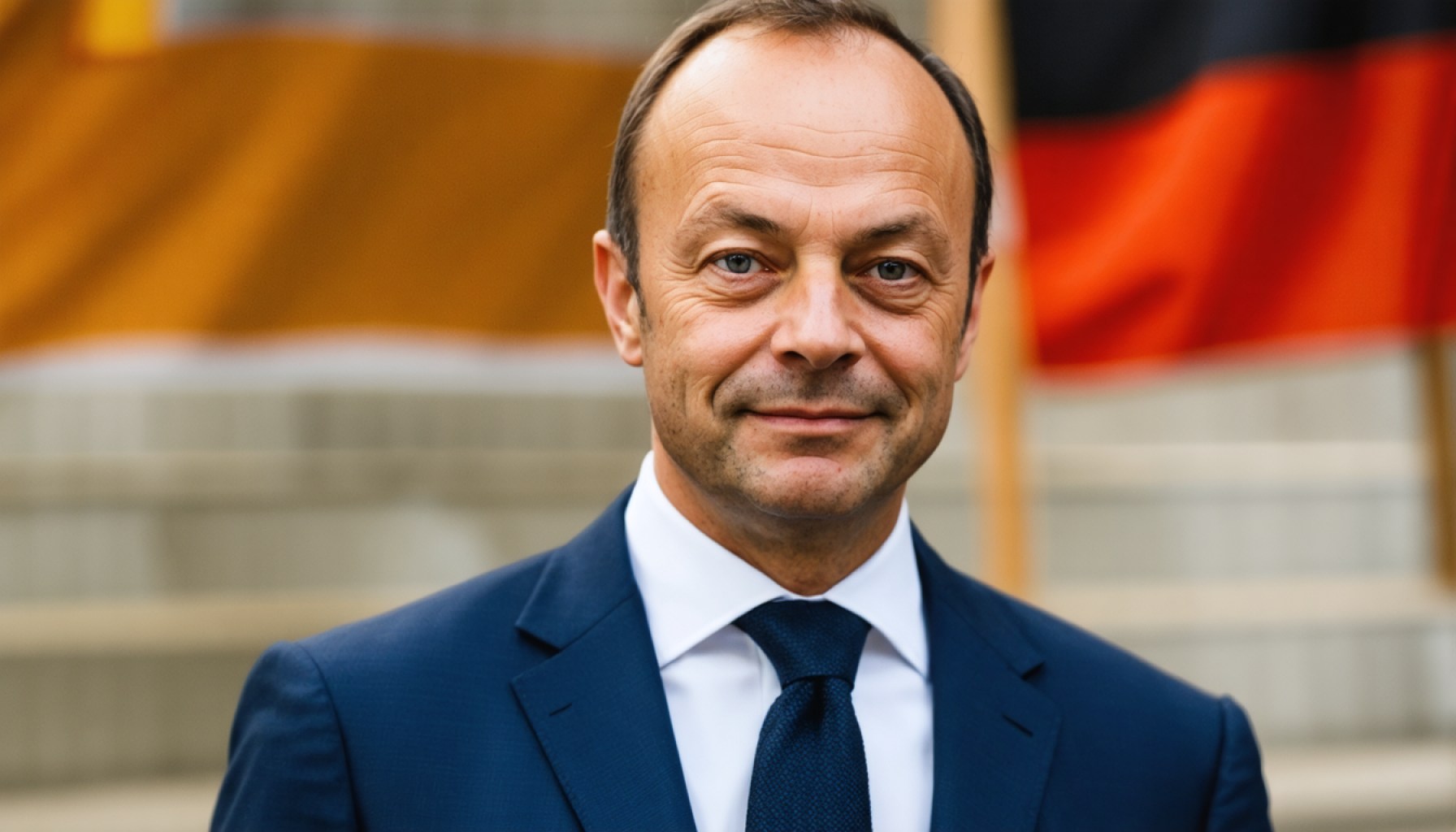- Friedrich Merz is set to become Germany’s chancellor following the 2025 Bundestag elections, ushering in significant political changes.
- The Economics Ministry’s future leadership is pivotal, with Carsten Linnemann, the CDU’s General Secretary, emerging as a key contender.
- Jens Spahn, formerly the Health Minister, is expanding his focus to economic roles, maintaining a strong alliance with Merz.
- Alexander Dobrindt’s extensive experience in transport and economics positions him as a potential candidate for ministerial roles.
- Coalition dynamics, particularly with the Green Party, could influence the final governmental composition and distribution of roles.
- Merz’s leadership intends to exclude current Economics Minister Robert Habeck, indicating a shift in climate governance strategies.
Visionary tides are sweeping through Germany as the nation’s political landscape braces for transformation. In the aftermath of the 2025 Bundestag elections, Friedrich Merz stands poised to assume the chancellorship. The air hums with anticipation—not only about who will lead, but also who will shape Germany’s economic future.
As the Union triumphs in first projections, a riddle persists: Who will navigate the complexities of the Economics Ministry? Carsten Linnemann’s name surfaces like a beacon. With his roots deeply embedded in finance, Linnemann, the CDU’s current General Secretary, carries the gravitas to tackle economic challenges. Years spent at Deutsche Bank and the IKB Deutsche Industriebank sharpen his economic acumen, equipping him to steer a new direction. Yet, whispers suggest that other ministries might also pique his interest, particularly in areas where his voice has recently resonated.
Meanwhile, Jens Spahn, whose ambition reaches beyond past achievements as Health Minister, eyes a broader canvas. His recent tenure saw him engaging fervently in economic discourse, readying him for potentially transformative roles. The CDU heavyweight maintains a strategic friendship with Merz, forming a potent alliance that could prove pivotal in governmental strategy.
Then there’s Alexander Dobrindt, waiting in the wings. With a history steeped in transport and economic committees, Dobrindt’s experience positions him as a viable candidate for influential ministerial duties. His involvement reflects the depth of political chess now underway.
The Union’s prospects shine brightly under Merz’s perceived leadership, yet coalition dynamics could sway the final verdict. The Green Party, potential allies, wait in the wings, but Merz’s vision excludes the current Economics Minister Robert Habeck from future roles, hinting at fresh systems and separate climate oversight.
As Germany’s political landscape unfolds, the dance of power and strategy plays on, with each choice promising to reshape the nation’s narrative.
Will Germany’s New Leadership Usher a New Economic Dawn?
How-To Steps & Life Hacks for Understanding Germany’s Political Transition
1. Stay Informed: Follow reputable news sources such as DW or Der Spiegel for the latest updates.
2. Understand Party Policies: Read party manifestos for the CDU, Green Party, and other coalition players to grasp their economic and climate agendas.
3. Engage with Expert Commentary: Listen to podcasts or read blogs from political analysts to understand the nuanced implications of the leadership change.
Real-World Use Cases
– Economic Policy Implementation: If Carsten Linnemann assumes a key role in the Economics Ministry, expect policies that may prioritize traditional banking and industrial sectors due to his tenure at Deutsche Bank and IKB.
– Climate & Energy Strategy: A coalition involving the Green Party may bring a stronger focus on sustainable and renewable energy solutions, especially as climate oversight becomes separate from economic planning.
Insights & Predictions
– Economic Transformation: A Merz-led Germany with Linnemann and potentially Spahn in influential roles could herald a shift towards pro-business policies, coupled with a potential pivot in healthcare approaches.
– Coalition Dynamics Affecting Policy: The Green Party’s involvement could steer some initiatives towards environmental sustainability, promoting a more balanced approach between industrial progress and ecological concerns.
Reviews & Comparisons
– CDU vs. Green Party Economic Visions: The CDU’s pro-business stance contrasts with the Green Party’s environmentally-driven economic model, reflecting significant policy differences that will need delicate balancing in any coalition government.
Controversies & Limitations
– Leadership Skepticism: Friedrich Merz’s leadership is sometimes regarded with skepticism due to his conservative views, which might create friction when addressing progressive social policies and appealing to younger voters.
– Coalition Challenges: The CDU’s exclusion of current Economics Minister Robert Habeck may cause tensions, especially since Habeck is a significant figure in the Green Party’s economic agenda.
Features, Specs & Pricing
– Economic Focus: The expected leadership team might focus on fiscal prudence, investment in technology, and strengthening Germany’s position in the EU market.
– Potential Challenges: While the emphasis might lean towards established industries, there’s a growing need to adapt to digital and green innovations that the current leadership might need to consider.
Pros & Cons Overview
Pros
– Strong Economic Foundations: Appointing leaders with extensive financial backgrounds could strengthen Germany’s economic stability.
– Strategic Alliances: The synergy between Merz and Spahn might enhance government efficiency and strategic policy implementations.
Cons
– Potential Political Friction: Exclusion of key players like Habeck could hinder coalition negotiations and policy coherence.
– Limited Youth Appeal: The older, conservative faces in leadership might struggle to engage younger, progressive voters.
Actionable Recommendations
– Engage with the Process: Engage in forums, discussions, and town hall meetings to voice your hopes and concerns about the new leadership strategy.
– Monitor Policy Developments: Regularly check the Bundesministerium für Wirtschaft und Energie’s updates to track new economic initiatives.
– Educate Yourself on Economic Policies: Take advantage of educational webinars on Germany’s economy hosted by universities and think tanks.
Understanding Germany’s potential roadmap is crucial for gauging future economic and environmental strategies. As the CDU, under Friedrich Merz, navigates a politically charged atmosphere, the nation’s policies will invariably impact not only domestic affairs but also the European and global landscape.
